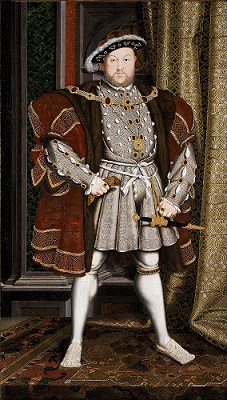Throughout history, rulers have employed secret police and intelligence networks to monitor dissent and quell opposition. One notable example was the notorious King Henry VIII, whose reign was marked by a relentless pursuit of control and suppression of dissenters.
During the tumultuous reign of Henry VIII, dissent and disagreement were seen as threats to his power and authority. To maintain control, the king established a formidable network of spies and informants who systematically identified individuals who opposed his policies. Under the guidance of his chief minister, Thomas Cromwell, these secret agents were deployed to unearth any dissenting voices and ensure swift retribution.
Those who dared to question Henry VIII’s religious reforms or his divorce from Catherine of Aragon faced dire consequences. Monks, nuns, and other religious figures who resisted the dissolution of monasteries or refused to acknowledge the king’s supremacy over the Church were subjected to persecution, imprisonment, and even execution. The Treasons Act of 1534 further enabled the king to silence opposition, making it a crime to challenge his authority or question his actions.
Fast forward to the present, and a disquieting echo of history emerges as revelations about the UK government’s Counter-Disinformation Unit (CDU) come to light. The CDU, established to counter criticism of Covid-19 policies, raises concerns about the erosion of civil liberties and the stifling of free expression in the name of combating disinformation.
Reports indicate that the CDU collaborated with social media companies and utilized artificial intelligence to monitor and identify individuals or groups critical of government policies, including mass vaccination of children and lockdown measures. This covert surveillance of dissenters is reminiscent of Henry VIII’s secret police, who sought out and punished those who opposed the king’s will.
The implications of such surveillance are deeply troubling. In a democratic society, the ability to express dissent and engage in informed debate is crucial for accountability and the well-being of its citizens. Surveillance of critics risks creating a climate of fear and stifling open discussion, thereby undermining the very foundations of a healthy democracy.
As society grapples with the challenges of the modern world, it is imperative to remain vigilant in safeguarding the principles of democracy, freedom of speech, and the right to dissent. History serves as a stark reminder of the dangers that arise when power is unchecked, and the current precedent must be critically examined to ensure that the actions of governments do not trample on the rights and freedoms of their citizens.
(Article was written with ChatGPT. The market provides.)


Leave a Reply